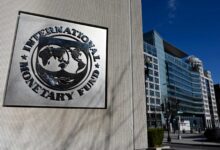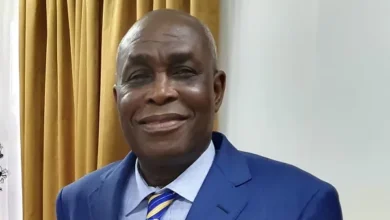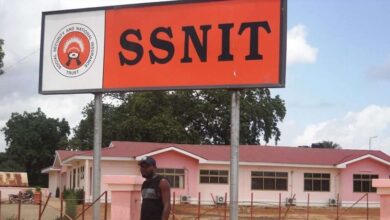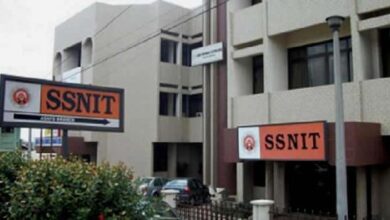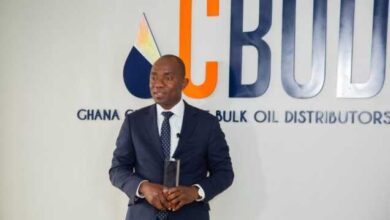Bank of Ghana’s higher cash reserve requirement for commercial banks is counterproductive – Kwakye
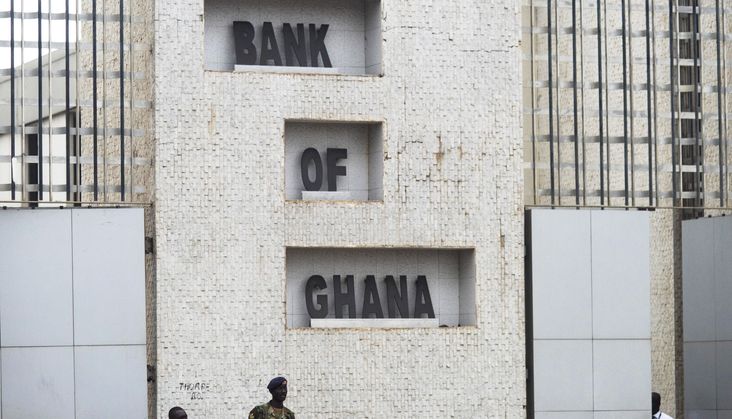
The Bank of Ghana’s higher cash reserve requirement for commercial banks is counterproductive because it affects the bank’s ability to lend, the Director of Research at the Institute of Economic Affairs (IEA), Dr John Kwakye, has said.
In the Bank of Ghana’s March 2024 Monetary Policy Committee report, private sector credit growth by banks remained sluggish, with February 2024 showing a 5.1% increase compared to 29.5% growth in February 2023.
Conversely, investments by banks in Government of Ghana (GOG) and Bank of Ghana (BOG) instruments surged to GH¢53.6 billion, marking a 67.6% year-on-year rise, contrasting with a 36.9% increase in the corresponding period of 2023.
The Central Bank at its last Monetary Policy Committee meeting in March 2024 announced an adjustment for the existing Cash Reserve Ratio of 15% with a now graduated ratio based on the existing loan to the loan-to-deposit ratio.
They were banks with a Loan to Deposit ratio above 55% will have to meet a CRR of 15%, banks with a Loan to Deposit ratio between 40% to 55% will have to meet a CRR of 20% and banks with Loan to Deposit ratios below 40% will be required to hold a CRR of 25%.
Addressing the 117th Monetary Policy Committee Press Conference in Accra on Monday, March 25, Governor of the BoG, Dr Ernest Addison said “Money market rates continued on a downward trend at the short end of the yield curve. The 91-day and 182-day Treasury bill rates declined to 27.87 percent and 30.34 percent in February 2024, from 35.67 percent and 35.73 percent respectively, in the same period of 2023. Similarly, the rate on the 364-day instrument decreased to 30.90 percent in February 2024 from 34.92 percent in February 2023.
“The banking sector’s performance has rebounded after the implementation of the Domestic Debt Exchange Programme (DDEP). In the first two months of 2024, total assets of the Banks increased by 21.0 percent, while total deposits and advances rose by 25.5 percent and 1.8 percent, respectively.
“Trends in key financial soundness indicators were mixed. The Capital Adequacy
Ratio, adjusted for reliefs, was 13.6 percent in February 2024, above the regulatory
minimum threshold of 13.0 percent, compared with 12.6 percent in February 2023.
Liquidity and profitability ratios also improved compared to a year earlier.”
Speaking during a national dialogue forum on the theme “Building an economy beyond IMF bailouts” organized by Media General in collaboration with the Africa Centre for Energy Policy, ACEP, on Tuesday April 9, Dr Kwakye said he has a problem with this decision of the central bank.
He said “I have been very critical about monetary policy management. I am not happy about where the interest rate is because I have a feeling that they are artificially too high. But it is also partly because of the fiscal dominance in the economy which forces the Bank of Ghana to react to that to raise interest rates in order to check the demand pressures that emanate from the expansionary fiscal policy.
“But the Bank of Ghana is also part of the problem in the sense that in 2022 they advanced as much as 50 per cent of the previous year’s revenue to the government when the BoG Act says that they can only do 5 percent.
“So when you inject so much liquidity into the economy and then it is causing inflation and currency depreciation then you turn around to raise your policy rate to 30 percent. I have called on them to bring it down drastically, In their previous last-but-one meeting they reduced it by 100 basis points, I was asking for at least 250 basis points, their very last meeting they kept the policy rate at 29 but the point is that, how do you expect this economy to thrive when businesses go and borrow at 30 percent or more? You are just suffocating the economy.”
He added “the reserve requirements have always been there but they were at a lower rate. Now, they have raised the rates to between 15 percent and 25 percent, this means that if a bank takes a deposit of 100 , it has to deposit 15 or up to 25% at the Bank of Ghana.
“That reserve which is kept there is not remunerated but the banks pay interest on 100 and they deposit 25% at the Bank of Ghana which they don’t earn anything on. How do you expect them to break even?
“They have to go back and raise the lending rate on the 75 or so that they are lending out. so that kind of policy is counterproductive. BoG is using that as a demand management tool, in other words, it is restricting the banks’ liquidity to be able to lend but you are the same bank of Ghana that is saying that credit to the private sector is also weak.”
Source link



